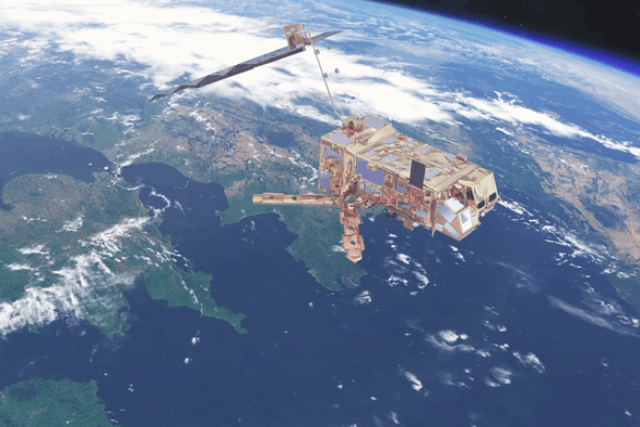The recommendation was one of five made in “The future of the European space sector”, a report to be released in January 2019, for which a sneak preview was given in a panel on space finance at the Newspace Europe conference in Luxembourg on Wednesday afternoon.
“[It’s] effectively a virtual or working group type with professionals globally in finance, industry, academia, to look at financing models and develop new ones through various stakeholders,” head of innovation finance advisory at the EIB Shiva Dustdar said. “The EIB will play a convenor role. We hope to have the Luxembourg Space Agency and larger companies involved.”
The platform would consider “valuable ideas” from innovative businesses, which the EIB could pilot incubate and bring them to the market, Dustdar explained. “This is not just a think tank but a real incubation of financial innovation.”
The report executive summary says that the forum would focus on the identification, raising awareness and development of innovative funding models and other instruments targeting the space sector. Among areas for further consideration would be:
- satellite insurance for entrepreneurs with limited or low flight heritage;
- financing solutions such as export credit, factoring and alternative solutions to alleviate the burden associated with pre-funding of launch costs for young satellite firms;
- brokering and financing access to space for European small sat companies to aggregate demand and increase bargaining power with launch providers, while diminishing risks;
- advisory functions and soft measures in support of the European space sector.
The report is released at a time when the commercial space sector, or newspace, is overtaking publicly-funded research to drive innovation globally. According to the EIB, space companies have attracted over €14.8bn of investment since 2000 thanks to the transformation of the industry.
Luxembourg has had a stake in the sector since the founding of satellite operator SES in 1985. Since 2016, it increased its standing with the launch of the Space Resources space mining initiative. Since then it has attracted scores of newspace companies, and placed these activities under the aegis of the Luxembourg Space Agency in September 2018.
The report says that while the industry is strong in Europe, “lack of financing hinders the growth of promising European companies and technologies.”
“We need to make sure from a financing perspective that we are not missing out and not losing great companies that got [public] support in the early days, to the rest of the world,” Dustdar said.
The report recommendations ways to keep the European space industry competitive, through tackling knowledge and funding gaps. Other recommendations in the report include strengthening the ecosystem of public support mechanisms by making them more flexible and commercially oriented, developing and deploying public sector pull mechanisms to stimulate technology development, exploring how European defence could provide opportunities for space startups to flourish and increasing the volume of risk capital.
The report was commissioned by the European Commission’s DG Grow and DG Research and Innovation departments.
